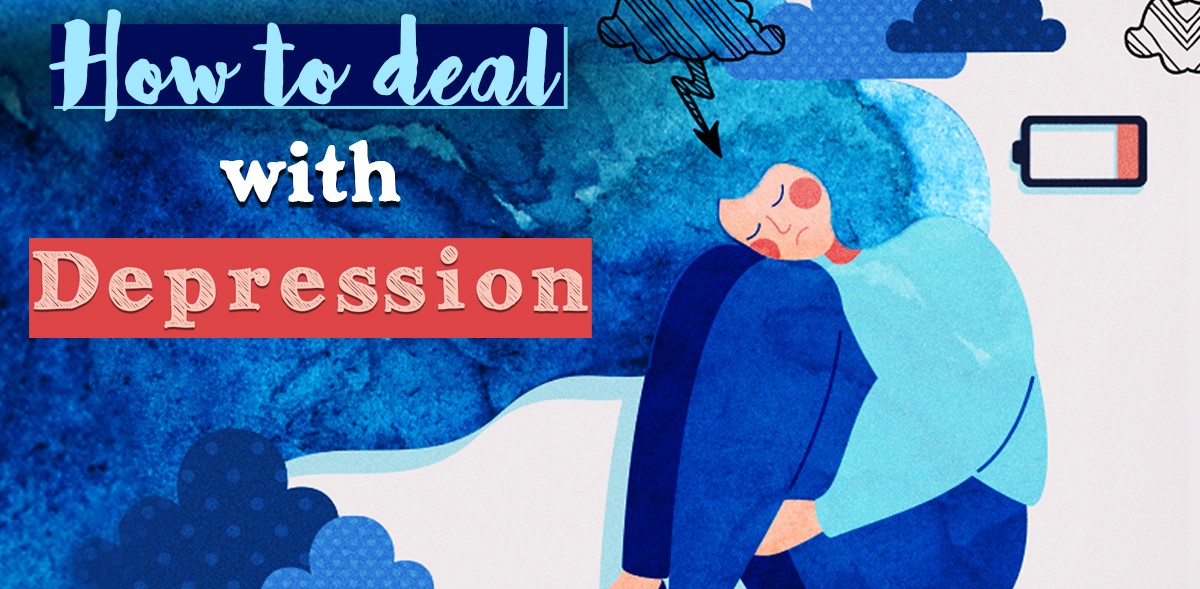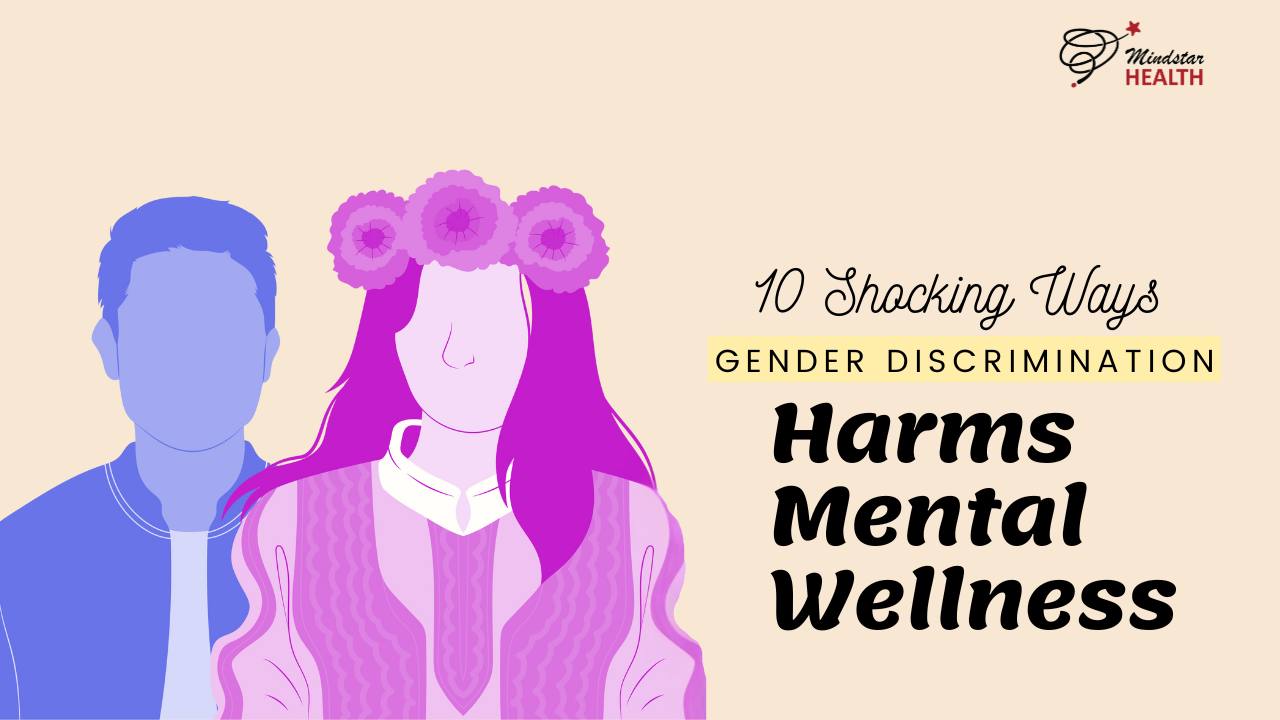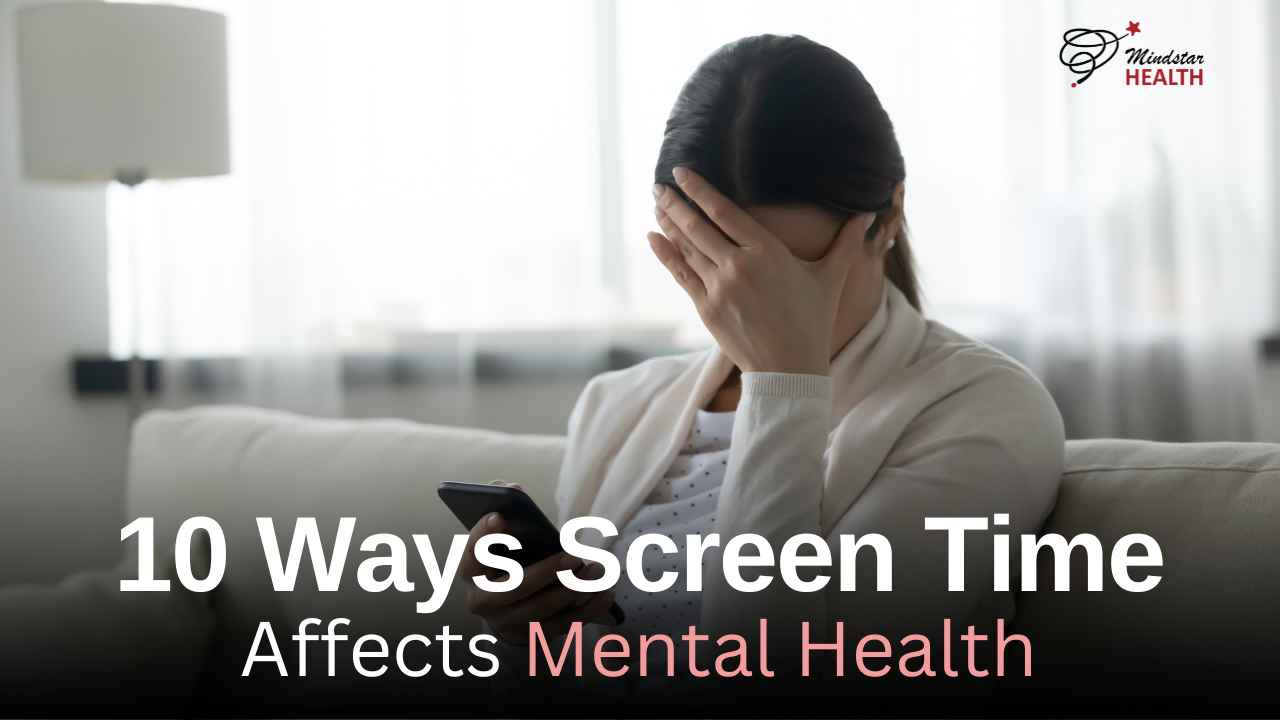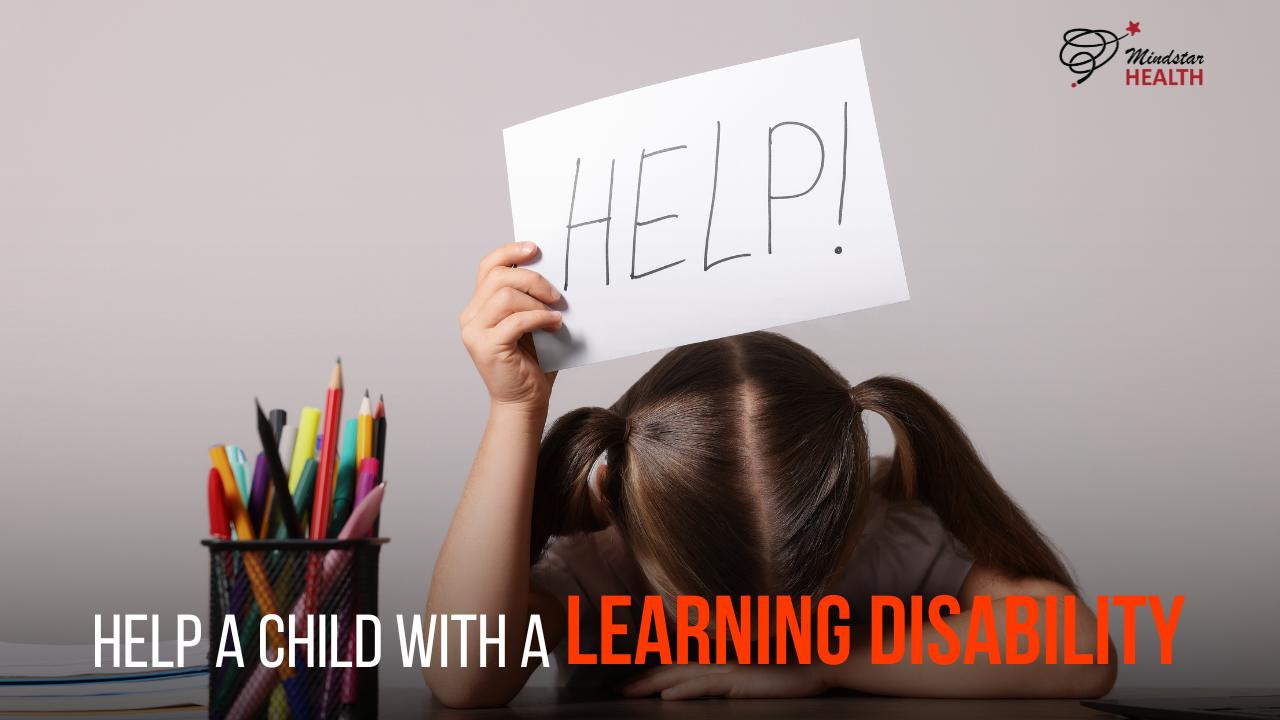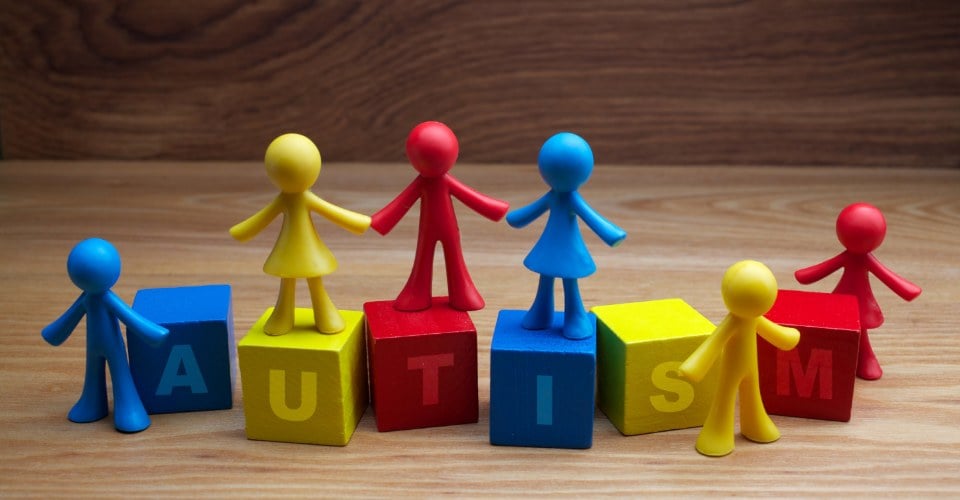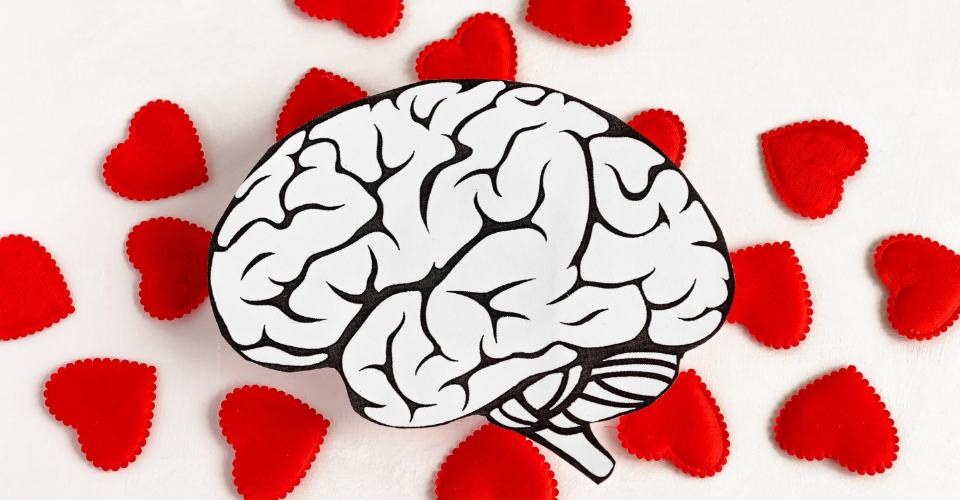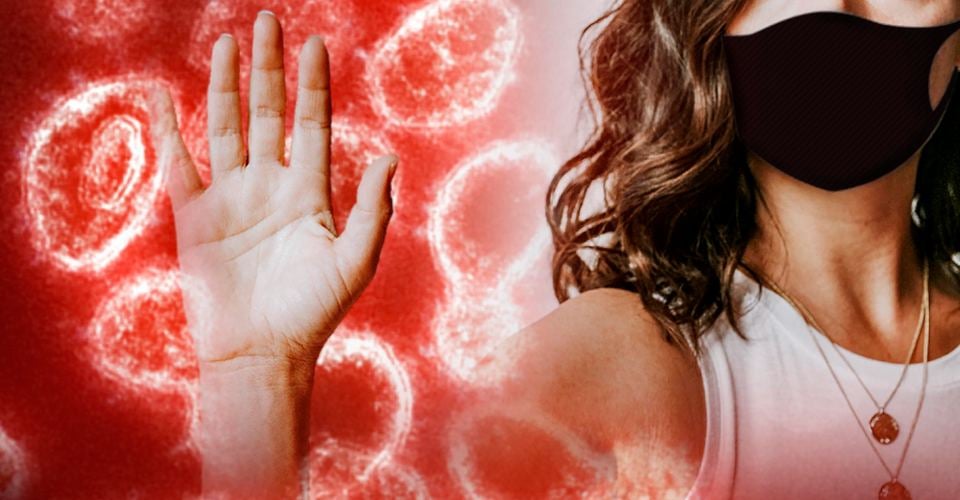Feeling sad or low occasionally is a natural response to life’s challenges, such as disappointments, setbacks, or losses. However, when these emotions last for weeks or months and begin to affect your relationships and enjoyment of life, they might be signs of depression.
Depression is a mental health condition marked by prolonged sadness, low mood, or a loss of interest in daily activities. It goes beyond ordinary life fluctuations and can deeply influence a person’s thoughts, emotions, behavior, and physical health.
Understanding how to deal with depression starts with recognizing that it is treatable—even in severe cases—especially when you have access to accurate information, professional help, and a strong support system.
Common signs of depression
“Recognizing the signs of depression is essential to understanding how to address it effectively. Common indicators include:
- Persistent feelings of sadness or being down without a clear cause.
- Losing interest or enjoyment in activities you once loved.
- Experiencing hopelessness, helplessness, or a lack of purpose.
- Fatigue and low energy, making daily tasks seem overwhelming.
- Sleep problems, such as insomnia or oversleeping.
- Noticeable changes in appetite or weight, either loss or gain.
- Restlessness, irritability, or frustration that disrupt daily life.
- Difficulty focusing, making decisions, or remembering details.
- Feelings of worthlessness or excessive guilt over trivial matters.
- Avoiding social interactions and withdrawing from loved ones.
- Unexplained physical complaints, like persistent aches or pains.
- Thoughts of self-harm or suicide, often driven by emotional pain.
If you or someone you know is dealing with depression, recognizing these symptoms is the first step toward recovery. Early intervention and support can make a significant difference.”
Dealing with Depression:
Understanding how to deal with depression involves a combination of proactive interventions. Below are three key strategies to address depressive symptoms effectively:
1. Lifestyle Adjustments
• Regular Exercise: Physical activity boosts endorphin levels, helping to elevate mood and alleviate signs of depression.
Example: A morning jog or joining a yoga class can energize you and reduce feelings of sadness.
• Balanced Diet: Consuming nutritious foods supports brain health and emotional well-being.
Example: Including omega-3-rich foods like salmon or flaxseeds in your meals can mitigate depressive symptoms.
• Proper Sleep: A consistent sleep routine is vital for dealing with depression and enhancing emotional stability.
Example: Techniques like deep breathing before bedtime can promote restful sleep and reduce mood swings.
• Limiting Alcohol and Addictions: Reducing alcohol or substance use is critical, as these can worsen depression symptoms.
Example: Exploring hobbies or engaging with supportive social circles can help overcome unhealthy coping mechanisms.
• Building Social Connections: A strong support network helps combat isolation and emotional distress.
Example: Sharing your feelings with close friends or participating in group activities can create a sense of belonging.
These practical lifestyle changes can serve as a foundation for dealing with depression and fostering long-term well-being.
Behavioral and Cognitive Changes: How to Deal with Depression Effectively
Positive reinforcement
Incorporating positive reinforcement as part of behavioral activation is a powerful way to deal with depression. This approach creates a rewarding cycle where engaging in activities that boost your mood leads to further motivation and well-being. Setting achievable goals and rewarding yourself for accomplishing them can help foster a more fulfilling life.
Example: Aim for a daily walk outdoors and reward yourself with a soothing bath afterward, cultivating a sense of accomplishment and pleasure.
Cognitive restructuring
Recognizing and reshaping negative thought patterns is a key strategy for addressing the signs of depression. By replacing these patterns with more constructive and realistic perspectives, you can enhance your mood and outlook.
Example: Instead of thinking, “I failed because I made a mistake,” reframe it to, “Mistakes are opportunities to learn and grow.”
Stress management
Stress and depression are often interconnected, with one exacerbating the other. Learning effective ways to manage stress is essential for breaking this cycle, alleviating depressive symptoms, and supporting overall emotional health.
Example: Practicing deep breathing exercises or progressive muscle relaxation daily can help reduce stress and improve resilience.
Mindfulness and meditation
Mindfulness practices can heighten self-awareness, reduce rumination, and alleviate anxiety—common signs of depression.
Example: Dedicate a few minutes each day to mindfulness meditation, focusing on your breath and staying present in the moment to promote a sense of calm and well-being.
By integrating these strategies into your routine, you can take proactive steps toward dealing with depression and enhancing your quality of life.
3. Creative expression:
Participating in creative activities like painting, writing, or playing music can be a therapeutic way of dealing with depression. Expressing emotions through journaling or playing a musical instrument can offer a sense of release and self-discovery.
Time in Nature:
Spending time outdoors and connecting with nature can help improve mood and reduce stress. Activities such as hiking in the woods or relaxing by the beach can provide tranquility and a much-needed mental reset when dealing with depression.
Recognizing Depression:
Understanding the signs of depression is essential for early intervention. If you’re uncertain about experiencing symptoms, consider taking a Depression Test to assess your mental health.
If you notice persistent symptoms, seeking professional help is the best way to learn how to deal with depression. A licensed psychologist or psychiatrist can conduct a comprehensive evaluation, considering your emotional well-being, symptoms, and medical history, to determine whether you meet the criteria for depression.
Professional Treatment and Therapy for Dealing with Depression
Psychotherapy
Psychotherapy provides effective tools for dealing with depression and addressing its root causes. For example:
- Cognitive-Behavioral Therapy (CBT): Identifies negative thought patterns and develops healthier coping mechanisms.
- Interpersonal Therapy: Improves communication and relationships to reduce depressive symptoms.
- Other Therapies: Approaches like psychodynamic therapy and dialectical behavior therapy (DBT) address emotional well-being, helping individuals learn how to deal with depression more effectively.
Medication
When psychotherapy alone is insufficient, healthcare professionals may prescribe antidepressants. For instance:
- Selective Serotonin Reuptake Inhibitors (SSRIs): Regulate serotonin levels to stabilize mood and provide relief from depression.
Alternative Therapies
Alternative therapies offer diverse methods for addressing depression:
- Yoga Therapy and Relaxation Training: Help reduce stress and foster relaxation.
- Expressive Therapies: Art, music, and dance movement therapies encourage emotional expression, promoting healing and well-being.
For example, a holistic workshop combining yoga, music therapy, and art therapy can provide multiple pathways for emotional release and help individuals learn to navigate their depression.
Support Groups
Support groups provide valuable connection and understanding from others facing similar challenges.
- Joining a group of individuals who have overcome depression can offer inspiration and foster a sense of belonging, reducing isolation.
Regular Check-ups
Consistent follow-ups with healthcare professionals ensure progress monitoring and treatment adjustments as needed.
- Scheduling regular appointments with a therapist or doctor allows for timely intervention and tailored care.
Understanding the signs of depression is the first step towards recovery. By seeking professional help, implementing positive lifestyle changes, and utilizing therapeutic options, you can effectively learn how to deal with depression. With the right support network and commitment to self-care, healing and a brighter future are possible.
Help and support are always available—reach out and take the first step toward well-being and recovery.

